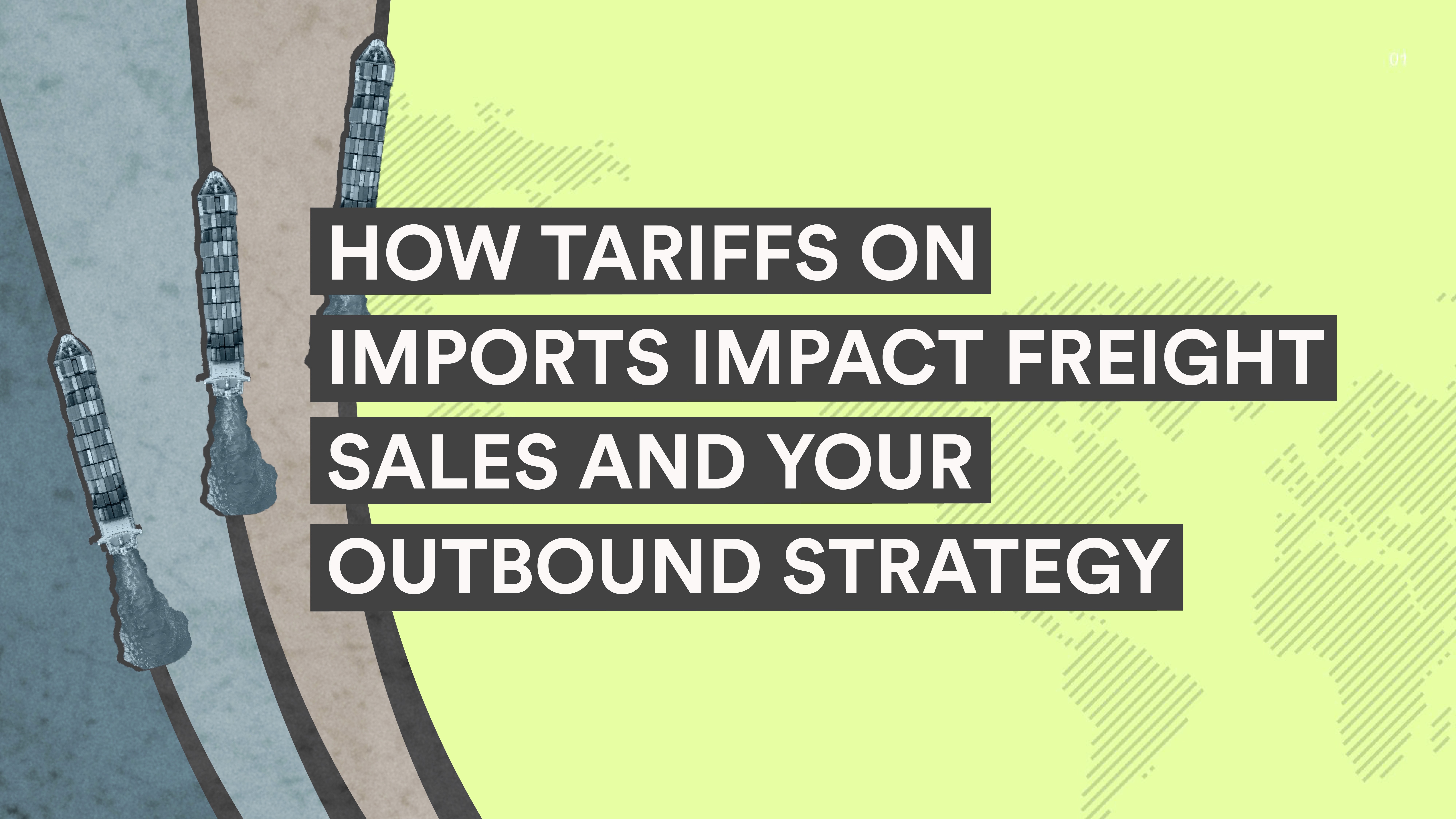Insights
Tariffs on imports have always been a cornerstone of global trade policies, but their ripple effects are often most acutely felt by freight sales teams. As trade tensions rise or new tariff regulations emerge, logistics professionals must pivot quickly to maintain their outbound strategies and retain their competitive edge. In this blog, we’ll explore how tariffs impact freight sales, why understanding them is critical, and how sales reps can adapt their strategies to navigate these challenges.
Author:
Brian Li
Published on:
Dec 2, 2024
Tariffs are taxes imposed on goods imported into a country, and they can vary significantly based on the type of goods, country of origin, and evolving trade agreements. For freight sales teams, tariffs introduce three major complications:
Cost Increases: Tariffs inflate the cost of imported goods, forcing clients to reevaluate shipping volumes and routes.
Market Volatility: Sudden changes in tariff regulations disrupt shipping demand and create unpredictability in client needs.
Data Complexity: Tracking tariff rates and their impact on specific commodities adds layers of complexity to prospecting and sales strategy.
For logistics sales reps, these challenges often translate into longer sales cycles and reduced profitability if not managed effectively.
Tariffs influence nearly every aspect of freight sales. Here’s how:
Shifting Trade Routes
Importers looking to avoid high tariffs may opt for alternative suppliers or shipping routes. This requires freight sales reps to stay informed about emerging trade lanes and adjust their pitches accordingly.Reduced Shipment Volumes
High tariffs can discourage importers from shipping goods in large quantities, which impacts freight volume and reduces opportunities for upselling additional services.Increased Complexity in Compliance
Tariff regulations often come with additional paperwork and compliance requirements. Freight sales teams must be prepared to answer client questions about how tariffs affect costs and transit times.
Freight sales reps can stay ahead of tariff-related challenges by fine-tuning their outbound strategies:
1. Leverage High-Quality Data
Having up-to-date and accurate data is critical to understanding how tariffs are impacting specific industries and clients. Tools like Revenue Vessel provide the insights needed to identify high-potential prospects even in volatile markets.
2. Focus on Value-Driven Conversations
Rather than selling solely on cost, focus on how your services help clients navigate tariff challenges, such as offering flexible shipping solutions or access to alternative trade routes.
3. Target Industries Least Affected by Tariffs
Certain industries may be less impacted by tariff fluctuations. Prioritize outreach to these sectors to maintain consistent sales opportunities.
4. Stay Informed
Regularly monitor tariff updates and their implications for your target markets. Demonstrating expertise in this area positions you as a trusted advisor to potential clients.
Tariffs on imports are not static; they evolve with changing political climates and global trade policies. Freight sales reps who rely on outdated strategies or fail to adapt to these shifts risk falling behind their competitors. By staying informed and agile, you can turn tariff-related challenges into opportunities to differentiate your services.
Tariffs on imports present unique challenges for freight sales teams, from rising costs to shifting trade routes. However, with the right strategies and tools, logistics sales reps can not only adapt but thrive in this dynamic environment. By leveraging accurate data, focusing on value, and staying informed, you can ensure your outbound sales strategy remains resilient and effective—no matter how the trade winds shift.Would you like to learn how Revenue Vessel can help you navigate tariff complexities? Schedule a demo today to see how we empower logistics sales teams to succeed.



















